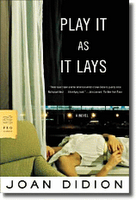Richard Francis writes both fiction and non-fiction. He has published nine novels so far, a book on utopian thought and biographies of Ann Lee, the founder of the Shakers and of

Samuel Sewall, the only one of the Salem Witch trial judges to admit the whole thing was a miscarriage of justice.
He has two books due out in 2010.
The Old Spring is a novel set in a pub and will be published by Tindal Street Press this month.
Fruitlands: The Alcott Family, The Englishmen, and Utopia, is non-fiction and gives an account of an eccentric and ill-starred utopian experiment that was set up in Massachusetts in 1843 by Bronson Alcott, the father of the author Louisa May Alcott, who was in fact a child at the community.
Francis named
his top ten literary pubs for the
Guardian. One novel on the list:
 Our Mutual Friend, by Charles Dickens (1864-5)
Our Mutual Friend, by Charles Dickens (1864-5)
Another redoubtable landlady, Miss Abbey Potterson of the Six Jolly Fellowship Porters in Limehouse (giving upon the river), reigns "supreme upon her throne, the Bar", and is more than a match for the villainous Rogue Riderhood. She serves delectable "Purl, Flip, and Dog's Nose", but can draw the line when she has to. "I am the law here, my man," she tells a protesting customer, "and I'll soon convince you of that, if you doubt it at all." But later in the novel she takes care of Jenny Wren, combining, as a good landlady should, a firm hand and a warm heart.
Read about
the other entries on the list.

In the season finale of season two of
Lost, the character Desmond says he carries around Charles Dickens'
Our Mutual Friend because he wants that to be the last book he reads before dying.
The opening paragraph:
In these times of ours, though concerning the exact year there is no need to be precise, a boat of dirty and disreputable appearance, with two figures in it, floated on the Thames, between Southwark bridge which is of iron, and London Bridge which is of stone, as an autumn evening was closing in.
--Marshal Zeringue
 One title on his list:
One title on his list:






































